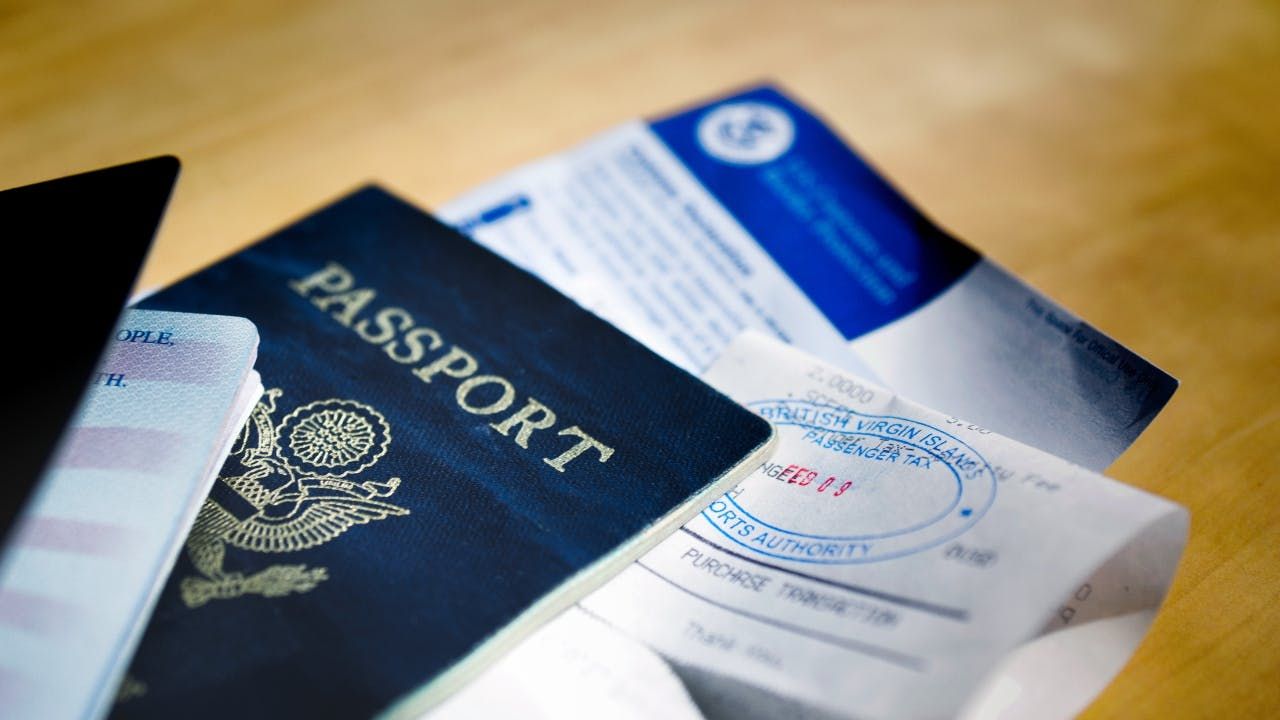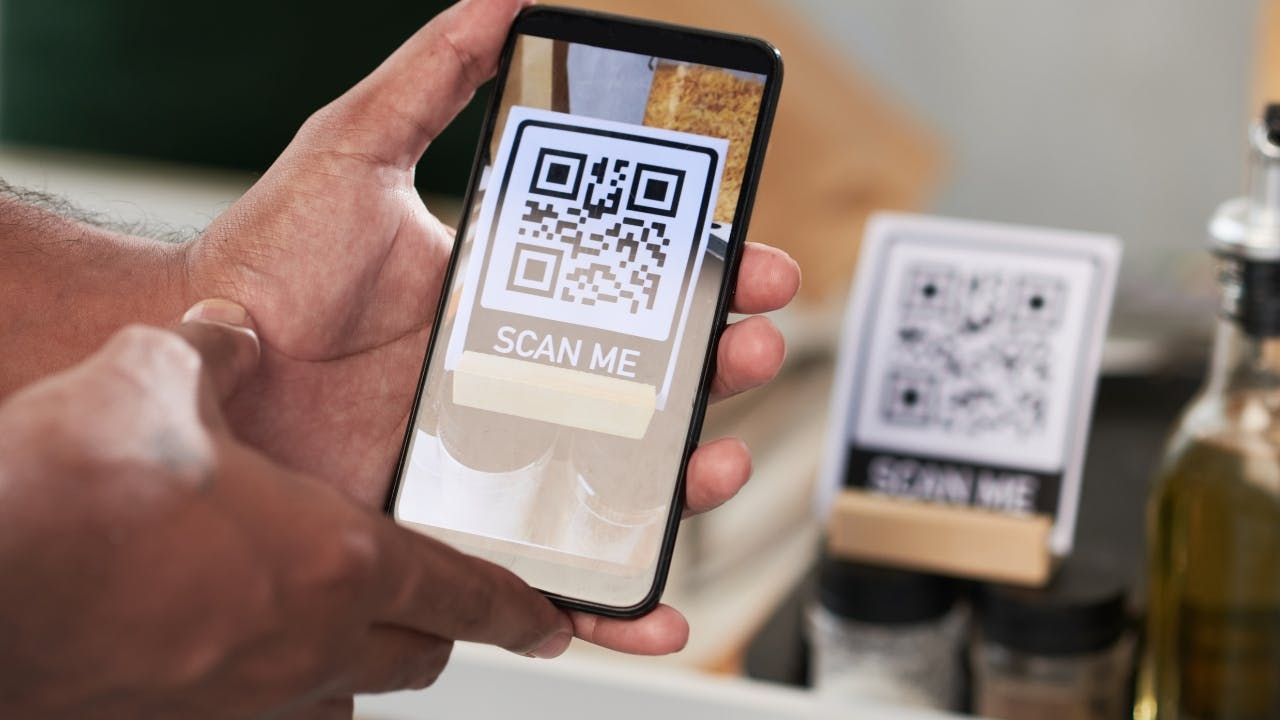
The Latest Travel Scams and How to Avoid Them
The 2025 holiday season is in full swing, with many families jetting off for the May Half Term. But if you’re yet to book your summer getaway, we want to ensure you don’t fall victim to the latest scams circulating this summer.
From AI-generated fake websites to clever twists on old tricks, scammers are becoming more sophisticated – and UK holidaymakers are firmly in their sights.

The good news is that these scams are often easy to spot once you know what to look for. We’ve rounded up the most common travel scams doing the rounds in 2025, along with exactly what to watch out for and how to steer clear.
Fake Holiday Booking Websites
We’ve noticed that scam websites offering luxury getaways are on the rise – and they’re becoming harder to spot! In many cases, these websites often mimic well-known travel brands and are becoming more and more professional-looking. You might even spot logos, fake reviews and customer service chatbots.

What to Look For:
- Too good to be true prices. More often than not, if the price of the holidays seems much lower than advertised by popular travel agents, it’s probably fake.
- Web addresses with odd spellings or domain endings, like ‘.net’ instead of ‘.com’.
- If they request payments by bank transfer, be aware.
How to Avoid:
- Always check if the company is ATOL or ABTA protected. These schemes are designed to safeguard travellers in the event of a travel company’s financial failure, and fraudsters won’t be covered.
- Ensure you’re booking through trusted providers and verified platforms.
- Pay with a credit card when booking holidays costing £100 – £30,000 to get extra protection under Section 75 of the Consumer Credit Act.
Phishing Emails and Fake Booking Confirmations

We’ve noticed recently that scammers are now targeting holidaymakers via email & text, claiming to be from airlines, hotels or popular booking platforms. These usually have a ‘fake’ look and will more often than not land in your junk email, but if you’re not tech savvy, they could be quite convincing.
These types of scam messages often state that ‘there’s a problem with your booking’ and urge you to click a link or re-enter payment details.
What to Look For:
- Keep an eye out for spelling errors and strange-looking email addresses. If you see spelling mistakes, blurred logos and capitalisation, these are all tell-tale signs the message is fraudulent.
- Urgent language such as ‘your reservation will be cancelled’ might be used to create fear.
- Any request for payment or personal information via email or message is a red flag.
How to Avoid:
- Don’t click on any links from emails or messages you believe to be a scam.
- Keep an eye on your online banking and regularly check for updates.
- Contact the travel provider using the details provided on their official website.
- Always use the ‘manage my booking’ or official contact details to make any outstanding payments.
Fake Customer Service Numbers
When something goes wrong with your flight or booking, it’s normal to panic and go straight to Google and contact the airline! The only thing is, scammers know this and will try to use it against you. They create websites that look legit and add fake customer service numbers that pop up in search results. If you call one of these numbers, you’re not getting through to the airline – you’re giving your details (and possibly your money) to someone posing as a helpful rep.
These scams can be surprisingly convincing, especially when you’re stressed or in a rush to fix a travel issue.
What to Look For:
- Like we’ve previously mentioned, keep your eyes out for fake-looking websites. If the webpage feels sketchy, don’t trust the contact details.
- If you do end up speaking to someone claiming to be a customer service rep, be cautious if they ask for things like payment details, remote access to your device, or unexpected fees – these are all strong signs you’re dealing with a scam.
- Keep an eye out for websites with strange-looking URLs or spelling mistakes that claim to represent big travel brands – scammers often create fake pages that look convincing at first glance but have small errors that give them away. These sites are designed to trick you into thinking you’re dealing with a legitimate company when you’re not.
How to Avoid:
- Make sure you always go directly to the airline’s official website – don’t rely on Google’s ‘featured’ results. Scammers often use paid ads to push fake customer service pages to the top of search results! Even if a number looks legitimate, it’s safer to go straight to the airline’s own website by typing the address in yourself.
- Look for verified contact info on the airline’s ‘Contact Us’ or ‘Help’ section. Most official websites will have a page for customer support. This is the best place to find up-to-date phone numbers, emails and live chat options.
- Bookmark official customer service pages before your trip for easy access if needed. If your plans change last minute or something goes wrong while travelling, the last thing you want is to be scrambling for help and coming across something fake.
Social Media Travel Scams
We’ve also spotted loads of travel scams on social media platforms like Facebook and Instagram. These can include everything from fake competitions to huge flash sales that are too good to be true. We’ve seen scammers creating convincing profiles or running ads offering holidays that don’t exist to trick customers into entering their details.

What to Look For:
- Avoid travel deals promoted by unverified pages or accounts. If the account has few followers, has been recently set up, or most of its followers look fake, then it’s most likely a scam page. In this case, we’d suggest blocking and reporting the page immediately.
- Be wary of competition posts that aren’t marked as an Ad or don’t feature terms and conditions. Most social media platforms have strict guidelines these days on competition posts, so if you see no T&Cs, it may be best to avoid it.
- Don’t fall for ads that ask you to DM for more details or request payment outside of the platform. Entry into a competition usually involves leaving a comment or liking and sharing a brand’s page – anything other than that is likely a scam.
- Contests asking for your personal or bank details to “claim” your prize. The most information a brand should need is your name and address. Any further details that need to be confirmed for travel competitions should be transferred via a secure portal or AMS file transfer only.
How to Avoid:
- We recommend only booking trips through official websites and verified accounts to be sure of their authenticity.
- Never send money to someone you don’t know, and be sceptical of prizes or deals that ask for upfront fees. Competitions should not require a fee, unless stipulated in the T&Cs or entry rules, but even then, if it’s not coming from a verified page or a trusted brand, it’s best to avoid it.
The Hotel Reception Phone Call Scam
This lesser-known scam involves a phone call to your hotel room phone by someone claiming to be from the front desk. They usually sound polite and professional and explain that there’s been an issue with your credit card during check-in. They’ll then ask you to confirm your card details over the phone. This is usually a caller from outside the hotel who asks to be put through to your room, not the hotel staff.
What to Look For:
- This scam usually happens shortly after you check in to make it seem more believable. If you’re tired from travelling, you may also be more likely to fall for it.
- Always be wary if a ‘staff member’ calls saying there was a problem with your payment or requests your full card number and security code over the phone.
How to Avoid:
- Never share your payment information over the hotel room phone. You should always go down to reception to confirm the request with a staff member in person.
- If you’re unsure, you can also hang up and call the front desk using the number provided at check-in.
- If you do receive any suspicious calls, you should always report them to hotel management so they can warn other guests.
Dodgy Holiday Rentals
With the increase in popularity of Airbnb, Vrbo and other holiday rental platforms, it is important to stay wary and learn how to recognise fake holiday rental posts. Sometimes, scammers even copy photos from real listings and post them on unofficial sites or social media, luring people in with low prices or pressuring them to pay quickly.
What to Look For:
- If a rental has no reviews or host history, then it’s best to avoid it. Not all of these will be fake; however, recently made accounts are the biggest culprits for posting fake listings, so it’s best to steer clear of them.
- If your host seems unusually responsive and eager for you to pay, they may be a scammer. Promises to offer things like discounted rates or repetitive messages and question marks are usual red flags. Any host that urges you to pay quickly or off-platform for a listing should also be avoided.
- If prices are far lower than similar properties in the area, then they’re likely too good to be true. We’d recommend checking the reviews on the platform and then Google Reviews before booking a suspiciously cheap holiday rental.

How to Avoid:
- Book through well-known platforms like Airbnb or Vrbo. Although there are sometimes fake listings added to these platforms, they are usually fast at removing them, and they tend to be quite obvious when posted next to legitimate listings. By booking with one of these platforms, you will also have protection should you fall for a scam.
- All communication and payments should be kept within the platform for your security. We’d recommend reporting any host that tries to get you to pay via a service like PayPal.
- Doing a reverse image search on the photos to check they’re not stolen is also a great way to verify that your listing is real. If the images pop up on multiple listings, then you’ll know that the post is a scam.
Visa and Travel Document Scams
Fake websites claiming to help with visas or travel passes have recently been catching people out, either by charging extra fees or, in some cases, stealing personal details! With the UK rolling out its new ETA and other countries bringing in similar rules, it’s easy to see why people are getting confused.

What to Look For:
- Always keep a lookout for websites which don’t have ‘.gov.uk’ in the domain. This is often the first warning sign that the website is fraudulent.
- If the website is promising a ‘fast track’ approval and charging a higher fee for this service, it’s likely a scam. In most cases, there is no such thing as a faster approval – these websites are simply trying to exploit travellers who might be urgently planning travel arrangements.
- Be cautious of any site that asks for sensitive information like passport details or an upfront payment without clearly explaining the process. Legitimate websites would guide you through any eligibility checks before requiring payment or any personal data.
How to Avoid:
- Make your start your application on the official ‘.gov.uk’ site. This guarantees you’re using a secure and trusted service, not a third-party site that might be looking to scam you and misuse your details.
- Scam sites often pay to appear at the top of search engines. These ads might look official, but they will lead you to a fake webpage. Scroll past the ads and click on the official government link instead – it’s usually one of the first organic results.
- A quick search on a trusted government site or travel advice page will tell you how much your visa or travel authorisation should cost. If a site is charging much more, it’s either a third-party service (with a big markup) or a scam.
Tech Scams on the Go
While free Wi-Fi and charging points can be a lifesaver when you’re on the go, they’re also a hotspot for scams, especially in busy places like airports & cafes. One of the lesser-known but growing risks is something called ‘juice jacking’, along with fake QR codes designed to trick you into handing over your personal data.
Scammers are getting smarter, using the tech we rely on every day to catch us off guard. Whether it’s a dodgy charging port or a tampered QR code, it’s easy to fall into the trap if you’re not paying attention.
What to Look For:
- Unsecured Wi-Fi networks with names like ‘Free_Airport_WiFi’ – these can be created by scammers to snatch your data while you browse.
- QR code stickers that look like they’ve been placed over something else can redirect you to fake websites or prompt you to download malware.
- Public USB charging ports that cause a prompt like ‘Trust this device?’ could be a sign that someone’s trying to access your data.

How to Avoid:
- Stick to your own mobile data where possible, or use a VPN to keep your connection secure when using public Wi-Fi.
- Bring a portable charger with you – that way, you can avoid public USB ports altogether and charge your devices safely.
- Be cautious with QR codes, especially ones in public places! If anything looks tampered with or out of place, don’t scan it. When in doubt, type in the website address manually.
In-Person Scams Abroad

Just because scammers have become more high-tech doesn’t mean the old tricks have disappeared. Some of the most common scams abroad have been around for years, and are still catching people out today.
What to Look For:
- Fake taxi drivers who overcharge, take unnecessarily long routes or claim the meter’s broken. Some may even insist your hotel is ‘closed’ and offer to take you somewhere else (where they will likely get a cut).
- Distraction theft in busy tourist areas is another common scam that many fall victim to. Someone might spill something on you, ask for directions or get a bit too close – all the while, an accomplice will help themselves to your wallet or phone.
- Fake police stopping tourists and asking to see ID or claiming you’ve broken a law, then demanding an on-the-spot fine in cash.
How to Avoid In-Person Scams:
- Stick to official taxi ranks or use trusted ride apps like Uber or Bolt so you know who you’re dealing with and can track your journey.
- Keep all your personal belongings out of sight in crowded places – backpacks and handbags are easier than you think to access without you knowing. Opt for front-facing bags or a money belt.
- If someone stops you claiming to be an official, don’t hand over your passport on the spot. Ask to see their ID and say you’d rather go to the nearest police station to sort things properly. Real officers won’t have a problem with that – scammers usually will.
‘Helpful Locals’ Aren’t Always What They Seem
This type of scam is especially common in places like Bangkok, but it can happen anywhere! It usually starts off innocently – someone might approach you near a tourist spot, start a conversation and even offer some helpful travel tips. They might say they work at a nearby museum or temple and mention a tailor or fabric shop that’s ‘only open to the public for a few days a year’.
Later on, you might bump into someone else who, by coincidence, brings up the same shop and raves about how amazing it is. Before you know it, you’ve arrived at a high-end-looking store where the staff quickly usher you in and start showing you fabrics and taking measurements.
You’ll usually get the clothes – so it’s not outright theft – but the quality rarely matches the price, and it’s all been carefully staged to make you feel like you’re getting a great deal when you’re not.
What to Look For:
- If more than one local ‘Tuk Tuk’ driver brings up the same Fabric or Tailor shop in casual conversation, there’s a good chance it’s part of a setup! It’s made to feel spontaneous, but it’s probably been rehearsed many times.
- If someone is trying to make you act right now on something, it’s probably a scam!
- Scammers often don’t give you time to think. If you’re being bombarded with questions, small talk or being nudged to make a quick decision, that’s a red flag.
How to Avoid:
- Friendly locals exist, but when the same shop keeps coming up in separate conversations, it’s worth questioning the coincidence.
- If you’re unsure, don’t go anywhere you genuinely don’t want to go to (and don’t feel bad for it). Scammers want you to feel pressured or guilty, so they can rope you into a purchase you didn’t ask for.
- If you want tailored clothing or a local experience, research a few reputable spots in advance – or ask your hotel, hostel or someone you trust for recommendations.
Scammers are getting cleverer these days, so it’s always worth knowing what to look out for before you book. If something feels a bit off, take a moment to double-check. A genuine deal isn’t going anywhere.
What to Do If You’ve Been Scammed
Getting scammed while travelling can feel embarrassing, frustrating or just unlucky but it happens to more people than you’d think! The important thing is not to beat yourself up about it. These scams are designed to catch people off guard, and even the smartest travellers get caught out.
If you do think you’ve been scammed, here’s what you can do:
- Let your bank know straight away, especially if you paid by card. They might be able to stop the payment or help you get your money back – especially if you paid by credit card and the amount was over £100.
- Report it to ‘Action Fraud’ when you’re back in the UK. It helps build a picture of how these scams are operating and can stop others falling for the same thing.
- Hold onto any emails, receipts or messages – even if they seem minor. They might help if you need to make a claim or prove what happened later.
Here’s some more ways you can avoid running into a travel scam in the future:
- Give yourself five minutes to research common scams in the destination you’re travelling to before you travel. A quick scroll online can make you much more aware of what to watch for!
- Save websites or contact details in advance (like your airline or hotel) so if something goes wrong, you don’t end up on a dodgy site.
- If a deal feels too good to be true, or you feel rushed or unsure, it’s totally fine to walk away and check things out first.
In most cases, you’re unlikely to come across a scam when heading on holiday – but being aware of the scams you may comes across can help you enjoy your trip without any unwanted surprises!